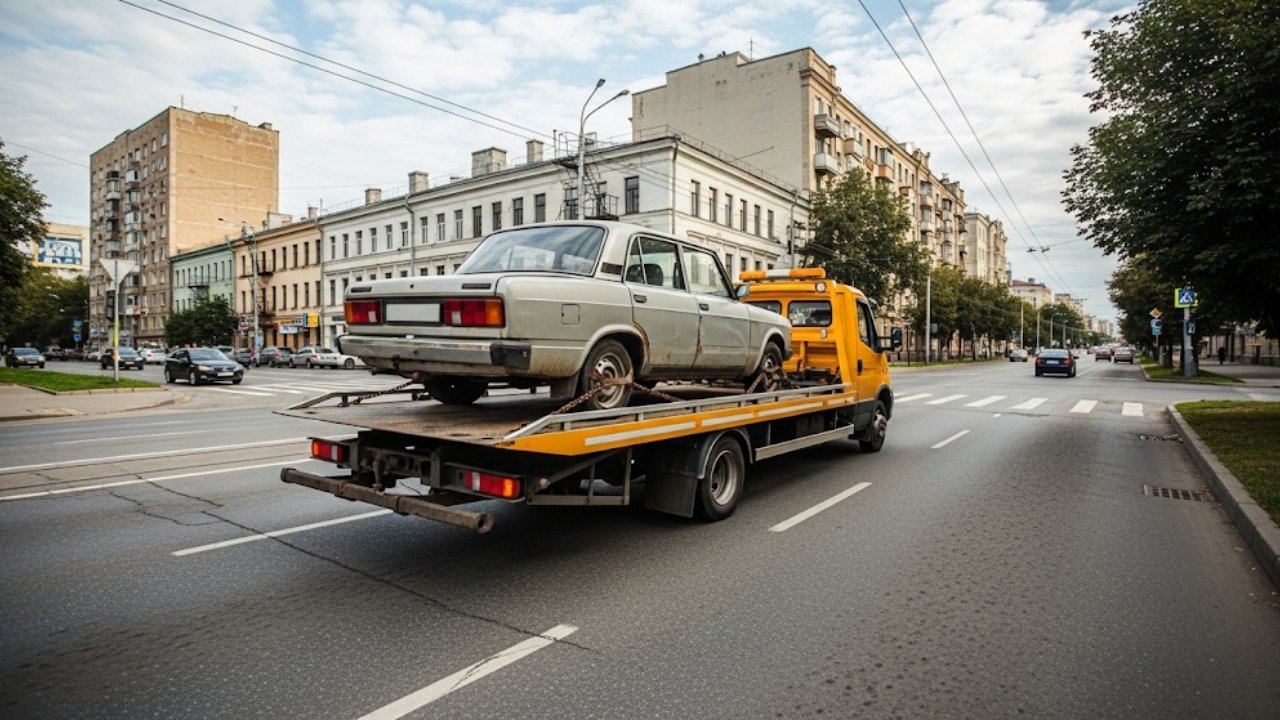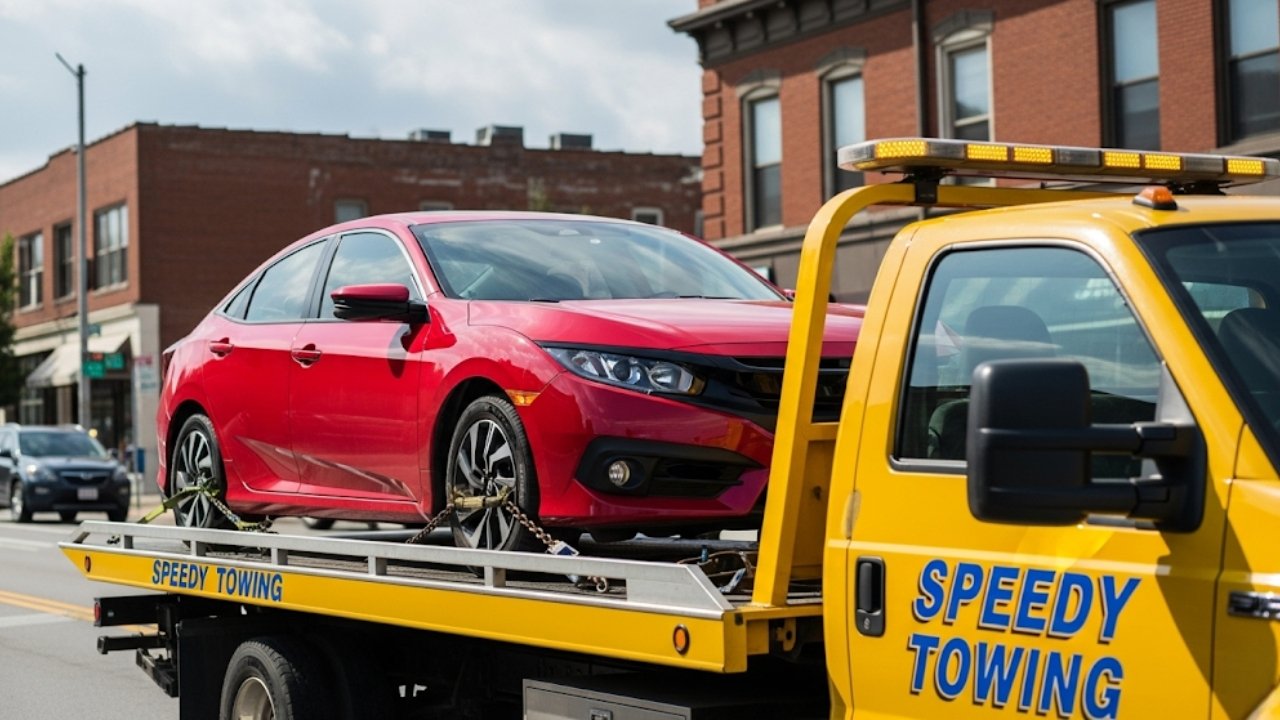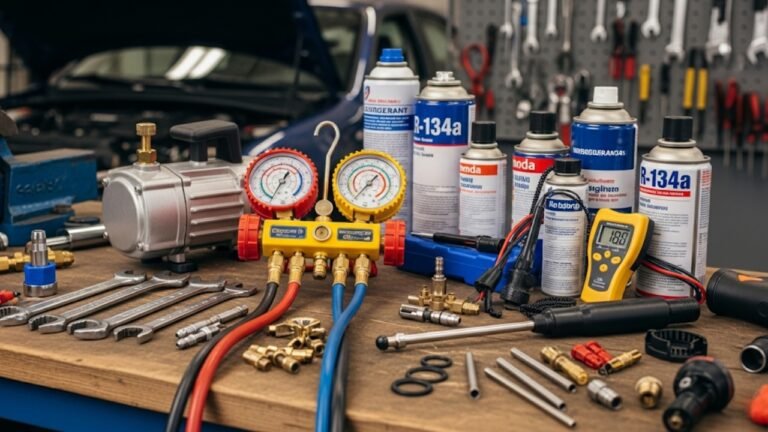How Much Does Towing a Car Cost Per Mile?

Imagine this—you’re driving home after a long day, your favorite song is playing, and life feels good. Then suddenly, your car shudders, the engine dies, and you’re stranded. No warning, no mercy. You pull over, switch on the hazard lights, and reality hits. You need a tow. But wait—how much does towing a car cost per mile?
Whether it’s a breakdown, accident, or just an unlucky flat tire with no spare, towing is something most of us don’t think about until it becomes necessary. And when that moment comes, the cost becomes the next big worry. Is it $3 per mile? $10? Does distance matter? Are there hidden fees?
Let’s walk through the emotional rollercoaster, the practical details, and the money questions around towing a car per mile, so you’re never caught off guard.
The Real Cost of Towing a Car: Let’s Break It Down

Here’s a simple way to think about it:
| Service Type | Cost Range |
|---|---|
| Base Fee (Hookup) | $35 – $125 |
| Per-Mile Charge | $2.50 – $7.00 |
| Average Short-Distance Tow (5 miles) | $60 – $160 |
| Average Long-Distance Tow (100 miles) | $300 – $700 |
There are also factors that can drive the price up:
-
Time of day (nights or weekends can cost more)
-
Location (rural vs. city service areas)
-
Vehicle size (SUVs, trucks, and vans may cost more)
-
Road conditions (off-road recoveries are pricier)
-
Urgency (emergency or priority towing costs more)
In my case, I once had to tow my car just 7 miles. It was a Sunday evening, in the middle of nowhere. The guy quoted me $125 total—$50 base fee and $75 for the mileage. I thought he was joking, but turns out, that’s not unusual when you need help fast and far from town.
Distance Matters: Why Per-Mile Towing Isn’t Always Straightforward
Let’s say your car breaks down on a quiet country highway. You call a local towing service and ask the golden question: “how much does towing a car cost per mile?” They tell you it’s $5 per mile after the hookup fee.
You might think, “Oh, it’s only 10 miles—so $50 plus base, that’s not bad.” But what if the nearest tow truck is 30 miles away? That return mileage can sometimes be billed as well.
Some companies charge one-way towing, meaning they’ll only charge from the point of pickup to the drop-off. Others use round-trip towing, especially in rural areas, which doubles your per-mile cost.
So always ask:
-
Do you charge per mile one-way or round-trip?
-
Are there minimum mileage fees?
-
What’s the total cost from pickup to destination?
Transparency is key. Some companies give you an exact quote; others throw in extra fees like winching, dolly usage, or off-road charges after the fact. That’s why reading reviews and asking the right questions matter more than ever.
Different Types of Towing and How They Affect Pricing
When asking how much does towing a car cost per mile, it’s also important to understand the type of towing involved. Not all tows are created equal. Some require more equipment, labor, or risk.
Here are the common towing methods and how they differ:
1. Flatbed Towing
This is the most secure way to tow your car. The vehicle is lifted entirely onto the bed of the truck. It’s great for luxury cars, long distances, and damaged vehicles. But it often comes with a higher base fee and sometimes a higher per-mile charge.
2. Wheel-Lift Towing
This is more affordable. It lifts the front or rear wheels off the ground while the other wheels roll. It’s quick and cost-effective, but not ideal for AWD or luxury cars.
3. Integrated Tow Trucks
These heavy-duty trucks are used for buses, trailers, or very large vehicles. Costs can be astronomical—over $10 per mile—but they’re rarely used for passenger cars.
So, depending on your vehicle and situation, your per-mile towing cost can vary widely. If your car is small and in a normal position, it’ll likely be on the cheaper end. If it’s stuck in a ditch or you’re driving a BMW, expect to pay more.
Emergency vs. Scheduled Towing: The Timing Game
Let’s be honest—most of us don’t plan our breakdowns. But did you know that scheduling a tow ahead of time can be much cheaper than calling for emergency help?
If your car won’t start in the morning and you’ve got time, you can call multiple companies, compare rates, and even schedule a pickup. These planned tows might charge as low as $2.50 per mile.
But if you’re stranded at 11 PM on a weekend, you’ll probably be hit with:
-
After-hours surcharges
-
Emergency service fees
-
Limited choices, leading to higher prices
In a past experience, I waited over an hour for a tow in the rain at night, and the final bill was over $180 for just a 12-mile tow. Could I have avoided that? Maybe. But when your car quits on a dark road, money becomes secondary to safety.
So, whenever possible, plan your tow during normal hours and compare rates ahead of time. Apps and websites like AAA, HONK, or Urgently can help you do just that.
Membership Programs vs. Paying Out of Pocket: Which Is Better?
This is where smart money decisions come in. If you’re someone who drives a lot or owns an older vehicle, it might be time to consider roadside assistance programs. Because let’s face it—paying per mile adds up fast.
Here are some common services and what they offer:
| Service | Annual Cost | Free Towing Miles | Extra Cost Per Mile |
|---|---|---|---|
| AAA Basic | $38 – $74 | 5 miles | ~$5/mile after limit |
| AAA Plus | $60 – $124 | 100 miles | ~$5/mile after limit |
| Allstate | ~$89 | 10-15 miles | Varies |
| Roadside App (HONK/Urgently) | Pay-per-use | Varies | Often $3–$7/mile |
If you’re not a member of a program and need a tow, your only option is to pay out of pocket, and that’s where costs spike. But these memberships pay for themselves quickly, even if you use them once or twice a year.
How Geography Affects Towing Costs
Here’s something most people don’t realize: where you break down matters just as much as how far you need to go. If you’re in a big city like Los Angeles or New York, the base rate and per-mile fee are usually higher due to traffic, demand, and labor costs.
In contrast, rural areas might have lower fees—but fewer tow trucks, which means longer wait times and possibly extra mileage charges if the company has to travel far to get to you.
Let’s say you break down in rural Montana. There might be just one tow company within 40 miles. They’ll likely charge:
-
$75 base fee
-
$5 per mile
-
And possibly charge mileage both ways
So for a simple 20-mile tow, you’re looking at $175–$250, depending on how their pricing works.
Avoiding Hidden Towing Charges: What You Need to Ask
Okay, so you’ve asked the basics: how much does towing a car cost per mile? But here’s the kicker—sometimes the quote you get isn’t the full picture.
Tow truck companies may not mention add-on fees upfront, and you only find out when you get the invoice. Ouch.
Here are common hidden charges that can sneak in:
-
Winching Fees: If your car is off-road, stuck in mud, snow, or a ditch.
-
Mileage After Drop-Off: Some charge for returning to their base.
-
Storage Fees: If your car is taken to a lot and not picked up immediately.
-
Fuel Surcharges: Common during high gas price seasons.
-
Toll Charges: If the route involves highways with toll booths.
-
Hook-Up Charges: Separate from the base rate in some cases.
So when you’re calling a towing company, ask these questions:
-
“Is the price you quoted all-inclusive?”
-
“Does that include the hook-up fee?”
-
“Are there any charges for winching or special equipment?”
-
“What happens if I can’t pick up the car right away?”
-
“Do you charge round-trip miles or one-way?”
Being clear from the start can save you from a nasty surprise later.
Is DIY Towing a Good Option? The Honest Truth
Maybe you’ve thought, “Why not just tow it myself?” I’ve been there—staring at my SUV, eyeing my buddy’s pickup, and wondering if a strong tow rope could do the trick.
Short answer: You can, but should you? Not always.
Pros of DIY Towing:
-
Saves money (no per-mile fee)
-
Immediate help if you’re in a pinch
-
Feels empowering, like a road warrior moment!
Cons:
-
You can damage both vehicles if done wrong
-
You may not have the right equipment
-
It’s illegal on highways in many states
-
Your insurance may not cover any damages
-
Safety risks are high
If it’s a short distance on a private road, and you know what you’re doing, DIY might work. But for most people, especially in unfamiliar areas or bad weather, professional towing is safer—and probably cheaper in the long run.
What Impacts the Cost Most? Let’s Simplify It
Now that we’ve covered a lot, let’s break it down to the top 5 things that really affect how much does towing a car cost per mile:
-
Distance: More miles, more money.
-
Vehicle Type: Bigger cars cost more to tow.
-
Location: Urban = expensive; Rural = less choice, longer travel.
-
Time of Day: Nights, holidays, and weekends are pricier.
-
Towing Method: Flatbed and heavy-duty towing come with premium pricing.
So, if you’re ever on the side of the road, confused and anxious, just remember: it’s not just mileage—it’s everything around the tow that determines the final price.
Tips to Save Money on Car Towing
Towing doesn’t have to drain your wallet. Here are smart ways to save:
-
Compare Rates in Advance: Save numbers of local tow companies in your phone.
-
Use Towing Apps: Try HONK, Urgently, or AAA Mobile to find nearby deals.
-
Get Roadside Assistance: Through your car insurance, credit card, or automobile club.
-
Bundle Services: Some repair shops include free towing if you fix your car with them.
-
Ask for a Flat Rate: Some providers give a discounted fixed rate for local tows.
One more personal tip: Don’t wait too long. If your car is acting up, get it to a mechanic before you’re stranded at night in a scary spot. It’s cheaper to tow a car that still turns on than one that’s dead in a ditch.
When Insurance Covers Towing (and When It Doesn’t)
A common misconception is that car insurance always covers towing. Sadly, that’s not true.
Here’s the breakdown:
| Insurance Type | Towing Coverage |
|---|---|
| Liability Only | ❌ Not Covered |
| Collision/Comprehensive | ❌ Not Covered by default |
| Roadside Assistance Add-On | ✅ Usually Covers 15–100 miles |
If you want towing covered, you often need to add roadside assistance to your policy. It’s usually just $10–$20 per year, and it’s 100% worth it if you ever get stranded.
Another trick: some credit cards offer free towing as part of travel perks. Chase Sapphire and Amex Platinum, for example, have some limited towing benefits built in.
Real Stories, Real Lessons: Towing Tales That Taught Me Something
Let me share two quick stories.
Story 1: The $400 Surprise
I was road-tripping through Texas when my alternator failed. I called the nearest tow company—they were 40 miles out. I didn’t ask about pricing because I was panicking. Guess what? They charged $6 per mile round trip. My total bill was $400. Lesson? Ask first. Always.
Story 2: Saved by AAA
Another time, my car overheated near Phoenix. I had AAA Plus. The driver arrived in 20 minutes and towed me 55 miles—for free. No questions. No stress. Best $99 I spent that year. Lesson? Memberships matter when you least expect it.
FAQs About Towing Costs Per Mile
1. What’s the average cost to tow a car 10 miles?
Usually between $60 and $120, depending on the base fee and per-mile rate.
2. Is flat-rate towing better than per-mile charges?
It depends. Flat rates can be cheaper for local tows, but per-mile pricing is better for long hauls if the base fee is low.
3. Can I negotiate the towing cost?
Sometimes, yes—especially if it’s not an emergency tow. Ask for a quote upfront, and don’t be afraid to ask for a discount.
4. Does my car insurance cover towing automatically?
Not usually. You need to add roadside assistance to your policy to be covered.
5. Can I refuse a tow if the price is too high?
Absolutely. As long as you haven’t signed anything or hooked up your car, you can decline the service.
6. Why is towing more expensive at night?
Tow companies often add after-hours charges due to labor and safety costs during nighttime.
7. How do apps like HONK or Urgently work?
They function like Uber for tow trucks. You get real-time quotes, estimated arrival times, and pay through the app.
8. How can I avoid needing a tow in the first place?
Keep up with vehicle maintenance, carry a spare tire, jumper cables, and always check battery and fluids before road trips.
Conclusion: Don’t Just Ask How Much—Ask What You’re Getting
Now that you know the answer to how much does towing a car cost per mile, you’re not just armed with numbers—you have knowledge, awareness, and real-world wisdom. And trust me, that matters when you’re stuck in the middle of nowhere with a dead car and a phone at 12% battery.
Towing might seem like just another expense, but when done right, it can be a lifeline. With smart planning, the right questions, and a bit of insider knowledge, you can make a stressful moment a little easier—and a lot cheaper.
So, next time someone asks, “How much does towing a car cost per mile?” you can smile and say, “Depends—but I’ve got the full scoop.”





